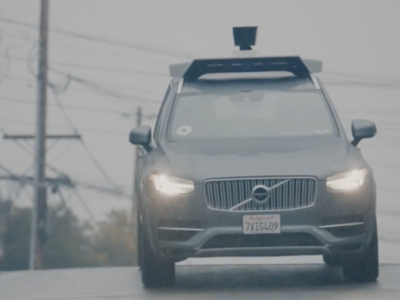Uber Plans to Keep Self-Driving in San Francisco
Car-sharing company is defying a state order to halt its testing of self-driving vehicles.
SAN FRANCISCO - December 20, 2016: The NACS reported that last week Uber announced that it plans to keep its self-driving cars operating on the streets of San Francisco, defying a state order to halt the test program, reports Yahoo News.
“The California DMV encourages the responsible exploration of self-driving cars. We have a permitting process in place to ensure public safety as this technology is being tested. Twenty manufacturers have already obtained permits to test hundreds of cars on California roads. Uber shall do the same,” stated the California Department of Motor Vehicles.
However, Uber said in a statement that it does not agree with the state’s interpretation of autonomous features.
Anthony Levandowski, Uber's vice president for advanced technologies, said that the car-sharing company respectfully disagrees with the California Department of Motor Vehicles legal interpretation of today's autonomous regulations, “in particular that Uber needs a testing permit to operate its self-driving cars in San Francisco.”
He explains that the regulations “apply to ‘autonomous vehicles,’” which he says are defined as “cars equipped with technology that can … ‘drive a vehicle without the active physical control or monitoring by a human operator.’ But the self-driving Ubers that we have in both San Francisco and Pittsburgh today are not capable of driving ‘without … active physical control or monitoring.’”
From a technology perspective, Levandowski says that self-driving Ubers operate in the same way as vehicles equipped with advanced driver-assist technologies; for example, Tesla autopilot and other equipment manufacturers’ traffic jam assist. “This type of technology is commonplace on thousands of cars driving in the Bay Area today, without any DMV permit at all. That is because California law expressly excludes from its law vehicles that have ‘collision avoidance’ or ‘other similar systems that enhance safety or provide driver assistance’ and, like our self-driving cars, are ‘not capable, collectively or singularly, of driving the vehicle without the active control or monitoring of a human operator.’”
Yahoo reports that Uber’s announcement came two days after California said the testing program was not authorized. In a letter to Uber, DMV counsel Brian Soublet said the permit is required to protect public safety: "It is illegal for the company to operate its self-driving vehicles on public roads until it receives an autonomous vehicle testing permit.”
Soublet continued that if Uber “does not confirm immediately that it will stop its launch and seek a testing permit, DMV will initiate legal action.”
Levandowski noted that it has been his life’s ambition “to make safe self-driving cars a reality,” saying that the technology has the potential to dramatically improve society by reducing the number of traffic accidents and freeing up the 20% of space in cities around the world currently used to park billions of cars.
“The distinction between our self-driving Ubers and the autonomous vehicles described by California state law is not a legal nicety. Nor are we seeking to exploit some loophole in the law. It’s an important issue of principle about when companies can operate self-driving cars on the roads and the uneven application of statewide rules across very similar types of technology,” Levandowski said.
According to the Wall Street Journal, the clash between Uber and the California DMV sets the stage for the first major test of emerging autonomous-driving laws. Companies such as Alphabet Inc.’s Google have also spoken out against the patchwork of state and federal laws, “but none have so brazenly defied regulators as Uber has done” in San Francisco.
And because California has taken an early lead in crafting autonomous-vehicle rules, notes the Journal, the outcome of Uber’s fight “could ripple across the industry.”



